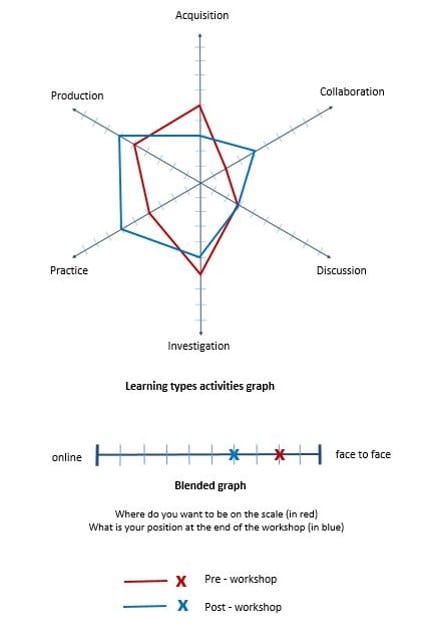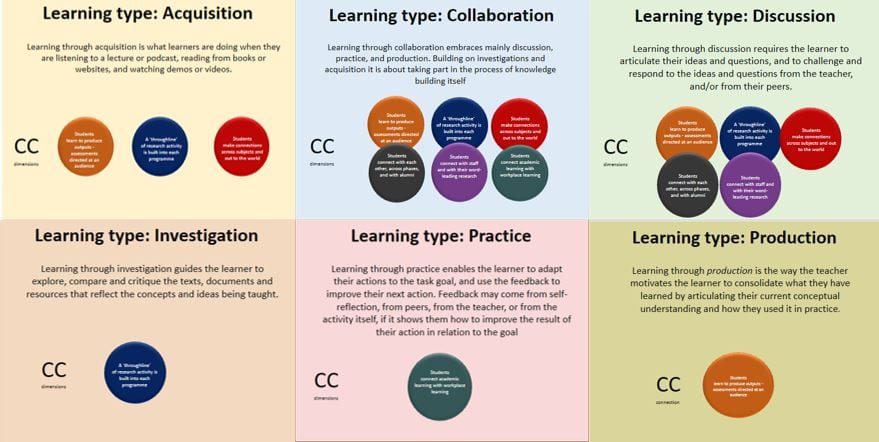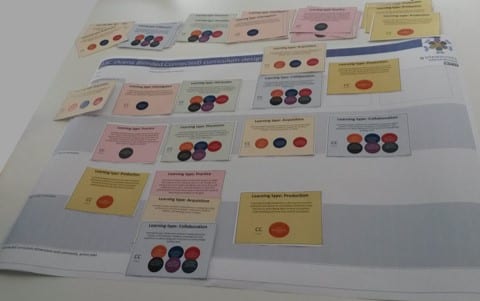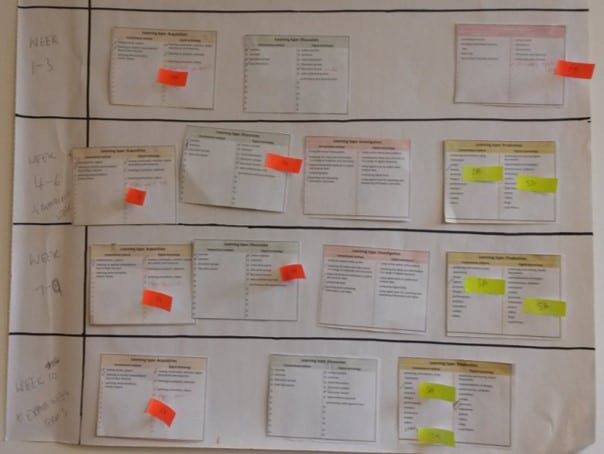ABC (Arena Blended Connected) curriculum design
By Natasa Perovic, on 9 April 2015
(For latest news about ABC LD, visit ABC LD blog)
The ABC curriculum design method is a ninety-minute hands-on workshop for module (and programme) teams. This rapid-design method starts with your normal module (programme) documentation and will help you create a visual ‘storyboard’. A storyboard lays out the type and sequence learning activities required to meet the module’s learning outcomes and how these will be assessed. ABC is particularly useful for new programmes or those changing to an online or a more blended format.
The method uses an effective and engaging paper card-based approach based on research from the JISC* and UCL IoE**. Six common types of learning activities are represented by six cards. These types are acquisition, inquiry, practice, production, discussion and collaboration.
The team starts by writing a very short ‘catalogue’ description of the module to highlight its unique aspects. The rough proportion of each type is agreed (e.g. how much practice, or collaboration) and the envisaged blend of face-to-face and online.
Next the team plan the distribution of each learning type by arranging the postcard-sized cards along the timeline of the module. With this outline agreed participants turn over the cards. Each card lists online and conventional activities associated with each learning types and the team can pick from this list and add their own.
The type and range of learner activities soon becomes clear and the cards often suggest new approaches. The aim of this process is not to advocate any ‘ideal’ mix but to stimulate a structured conversation among the team.
Participants then look for opportunities for formative and summative assessment linked to the activities, and ensure these are aligned to the module’s learning outcomes.
The final stage is a review to see if the balance of activities and the blend have changed, agree and photograph the new storyboard. 
The storyboard can then be used to develop detailed student documentation or outline a Moodle course (a module in Mooodle).
The ABC team is developing a program-level version based on the Connected Curriculum principles.
Participants’ thoughts about ABC curriculum design workshop:
For questions and workshops contact Clive and Nataša 
More:
References:
**UCL IoE: Laurillard, D. (2012). Teaching as a Design Science: Building Pedagogical Patterns for Learning and Technology. New York and London: Routledge.
 Close
Close








